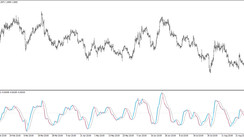Stumbling Blocks: Stepping Stones to Proficiency in Trading and Investing
As you embark on your trading or investing journey, remember: mistakes aren't just inevitable—they're essential. Whether you're navigating the ebb and flow of stocks, exchange-traded funds, and various securities as an investor, or riding the high-speed rollercoaster of futures and options as a trader, pitfalls abound. Both traders and investors, each using their distinct transaction types, frequently fall prey to similar mistakes. Let's take a closer look at these common blunders and learn how to sidestep them.
Trading Without a Plan: A Ship Adrift in Stormy Seas
Experienced traders don't simply dabble in trades—they dive in with a well-crafted plan. Their strategy encompasses:
- Precise entry and exit points
- Defined capital investment
- Clear maximum loss threshold
However, trading novices often leap without looking. They may start trading without a concrete plan or, even if they have one, abandon it at the first sign of trouble. This lack of direction can lead to disastrous decisions and drastic reversals—like short-selling after initially buying due to declining prices.
The Temptation of Chasing Performance: A Fool's Gold
All too often, investors or traders are enticed by the glistening allure of recent top performers. The fear of missing out on possible spectacular gains can lead to investment decisions that prove to be anything but golden.
Remember, if an asset, strategy, or fund has demonstrated a fantastic performance over the past few years, the opportune moment to invest was back then. Chances are, the cycle of exceptional performance may be nearing its end, with wise money moving out and uninformed money rushing in.
Forgetting to Rebalance: A Ship Without a Rudder
Rebalancing—realignment of your portfolio to its target asset allocation according to your investment plan—is a key principle often ignored. Though it might involve seemingly counter-intuitive moves, such as selling your best-performing assets and buying more of your poorest performers, regular rebalancing is crucial to steer clear of poor performance and harness long-term benefits.
Risk Aversion: A Sight for the Watchful Investor
Always keep a watchful eye on your risk tolerance. Investors who find market volatility unnerving and prefer the calm waters of secure, regular interest income would be better off investing in the blue-chip stocks of established firms and steering clear of the stormy seas of volatile growth and startup company shares.
Every return on investment comes hand in hand with a risk. High returns are tempting, but always examine the risk profile. How much could you stand to lose if things go wrong? Always ensure you can afford to lose your investment without sinking your financial ship.
Forgetting Your Time Horizon: Running Blind
Investing without a clear timeline is akin to setting off on a journey without a destination. Your investment timeline, whether saving for retirement, a house, or your child's college tuition, determines how long—the horizon—you have to reach your goal.
By understanding your investment horizon, you can chart a course with investments that align with your financial goals.
Stop-Loss Orders: The Forgotten Lifeline
The absence of stop-loss orders is a glaring sign of a missing trading plan. These orders, acting as a safety net to limit losses due to unfavorable market movements, can be a crucial tool in a trader's kit.
Although there's a risk of the stop order executing at a lower level than specified during a sudden dip, the safeguarding benefits of stop orders far outweigh this risk.
Letting Losses Grow: A Dangerous Game
Successful investors and traders know when to cut their losses. If a trade doesn't go as planned, it's often wiser to take a small loss swiftly and move on. Holding onto a losing position, hoping it will turn around, can lock up your trading capital for an extended period and potentially lead to escalating losses and significant capital depletion.
Missteps in Averaging Down or Up
Averaging down might work for a long-term investor dealing in blue-chip stocks, but for a trader dealing in volatile and risky securities, it's a perilous game. Likewise, frequent short selling and averaging up, hoping the security price will continue to rise, can be equally risky.
The Reluctance to Accept Losses
Investors are only human, and humans make mistakes. Whether it's an impulsive stock purchase or a sudden downturn in a long-standing profitable investment, accepting losses is crucial. Holding onto a losing investment out of pride, or worse, buying more shares because they're cheaper now, can be a serious misstep.
Falling for False Buy Signals
A decline in stock prices can be due to several reasons—a deterioration in company fundamentals, a CEO's departure, or increased competition. A lower stock price does not always signal a good buy. Careful analysis is required before investing.
Overleveraging With Margin
Margin trading—using borrowed money to buy securities—can be a double-edged sword. While it can amplify profits, it can also compound losses. Using margin irresponsibly is akin to buying stocks on a credit card—an imprudent strategy. As a new trader, use margin sparingly, only if you understand all its facets and potential hazards.
Running With Leverage: A High-Stakes Sprint
Leverage can be enticing to novice traders due to the potential for amplified returns. However, it's essential to understand that it's a double-edged sword, capable of magnifying both profits and losses. Overusing leverage, especially in Forex trading, can lead to rapid and substantial capital losses.
The Peril of Following the Herd
New traders often fall into the trap of following the crowd, leading them to overpay for popular stocks or short sell securities that are about to rebound. Experienced traders understand that while trends can be profitable, overcrowded trades need to be exited swiftly.
Diversifying: Don't Put All Your Eggs in One Basket
- Diversification is key to avoid overexposure to a single investment.
- A balanced portfolio, comprising various assets, protects against severe losses and cushions against market volatility.
- If one asset class underperforms, another might be thriving.
Shunning Homework: The Pitfall of Inadequate Research
New traders often fall prey to the excitement of trading and overlook the importance of thorough research or due diligence. Ignoring homework can lead to expensive lessons. A comprehensive understanding of the asset you're investing in is crucial for success.
The Folly of Buying Unfounded Tips
Everyone might fall for this at least once in their investing journey. Tips about stocks, whether from friends, relatives, or investment gurus on TV and social media, are often no more than speculative gambles. Always consider the source and do your research before making any investment decisions.
The Risk of Consuming Too Much Financial TV
Spending excessive time consuming financial news shows and newsletters often adds little value to your investment strategy. Instead, focus on building and adhering to a sensible investment plan that aligns with your financial goals.
Overlooking the Bigger Picture
- Long-term investors should never ignore qualitative analysis.
- Evaluating a company from a broader perspective is as important as scrutinizing its financials.
- Changes in consumer behavior, industry trends, or societal norms can dramatically impact a company's future performance.
Trading Multiple Markets: A Recipe for Distraction
Novice traders frequently bounce between different markets—from stocks to options to commodities, etc. Trading multiple markets can be a significant distraction and hinder the acquisition of necessary experience in a single market.
Forgetting About Taxes and Trading Fees
- Understanding the tax implications of your investments is critical.
- Certain investments come with tax benefits, while others can impact your taxable income.
- Similarly, trading fees can eat into your profits, so it's important to choose a broker with reasonable fees.
The Danger of Overconfidence
"Beginner's luck" can lead to a false sense of security and encourage reckless risk-taking. Overconfidence can result in complacency, culminating in significant trading losses.
The Perils of Inexperienced Day Trading
Day trading is a high-risk game and should only be attempted by experienced traders. It requires significant investment savvy, a robust trading platform, and a considerable amount of trading capital.
Underestimating Your Potential
Some investors falsely believe that they can never excel at investing because they're not "sophisticated" enough. However, with proper research and a rational strategy, individual investors can achieve significant returns. It's important to remember that investing isn't reserved for the so-called gurus.





